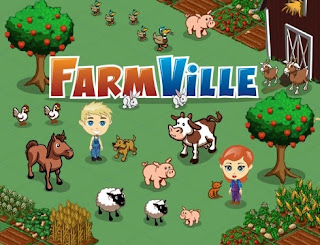Here’s why: It doesn’t need the money.
2) Virtual Goods
3) Applications
Restricting users’ ability to use the site would actually be detrimental to that model.
By the end of Q1, 2012, 82% of Facebook’s revenue came exclusively from advertising. Highly targeted, affordable advertising based on the plethora of data that its members share on the site is extremely valuable to brand’s looking to engage with their target audience. Facebook didn’t even introduce its ad platform until 2007 — because the company wanted to focus on adding users as quickly as possible – their most valuable money-making commodity.
By the end of Q1 2012, the network has generated 82% of their revenue through advertising.
However, the difference between it's division of revenue among advertising and other sources continues to increase.
The way Facebook earns even more money with ads goes beyond offering advertisers good targeting data. Facebook thrives monetarily from being useful to visitors. When Facebook makes a change, you can bet it’s either to:
- Generate attention to their services so that people will use Facebook more and click/view more ads (note that even the “I HATE THE NEW FACEBOOK!” comments keep the attention on Facebook itself)
- Generate more revenue from the ads (It’s rumored that Facebook will soon stop delivering business updates into your feed unless you interact with them a lot, meaning that they will have to buy advertising on Facebook)
- Respond to features of another service (Facebook is changing a LOT in response to Google+),
or - Improve their performance (meaning their servers don’t have to do as much work)
All of these things are driven by money.
In a recent poll by Reuters/Ipsos, four out of five Facebook users said neither advertisements nor comments on the social network have ever led them to buy a product or service. The vast majority of Facebook users say they ignore ads on the social network. Google appears to be more effective at attracting clicks, as The Wall Street Journal cites a click-rate that is seven times that of Facebook.
Zynga is an innovative company that brought casual gaming to the masses, there most popular game being FarmVille that users can play via Facebook -- and of course share socially their journey through the game. As far as their business model, Zynga gives their games away for free, but charges gamers for “virtual goods” that can be purchased inside of a game. These “virtual goods” allow gamers to experience new capabilities and access new features that were previously locked down. While this may sound like somewhat of a gimmick, the “virtual goods” business model has been extremely lucrative for the company.
 Facebook takes a cut when users buy virtual goods on games played through the network. In the FarmVille example – simply put, each time a user buys a cow, they put in their credit card information and Facebook takes a 30% cut of Zynga's revenue on that cow. And a roughly similar cut from other companies.
Facebook takes a cut when users buy virtual goods on games played through the network. In the FarmVille example – simply put, each time a user buys a cow, they put in their credit card information and Facebook takes a 30% cut of Zynga's revenue on that cow. And a roughly similar cut from other companies.There is a way that Facebook could make money with integrated applications and services.
Let’s take Spotify for example. Spotify did backflips given the opportunity to partner with Facebook and leverage the network’s massive audience, an audience who spends 15% of their total Online time on the social network. Facebook and Spotify have a streaming pact that allows the cloud-based music service on the profile pages of millions -- note that you must have a Facebook account to access Spotify, this is key. And Spotify was happy to enter into this agreement for free, especially given their recent gargantuan competition in the forms of Amazon Cloud Player and Google Music.
 Right now, no money is changing hands. It’s actually been a dream of Zuckerberg for quite some time to have a music platform on the network with many previous plans going the way of the “Facebook Poke.” The partnership with Spotify signifies how Facebook is flexing its muscles in the media space, offering services that keep people within the social network, rather than scouring other parts of the web for content.
Right now, no money is changing hands. It’s actually been a dream of Zuckerberg for quite some time to have a music platform on the network with many previous plans going the way of the “Facebook Poke.” The partnership with Spotify signifies how Facebook is flexing its muscles in the media space, offering services that keep people within the social network, rather than scouring other parts of the web for content.  If Facebook bought Spotify, almost all of Spotify’s 18 million users are already plugged in using their Facebook accounts. Users’ Spotify activity is already seamlessly integrated into Facebook. Spotify already has an ad platform, the main way that Facebook makes money. And finally, Spotify already has apps, which are a major part of Facebook’s brand platform. All this will become the property of Facebook.
If Facebook bought Spotify, almost all of Spotify’s 18 million users are already plugged in using their Facebook accounts. Users’ Spotify activity is already seamlessly integrated into Facebook. Spotify already has an ad platform, the main way that Facebook makes money. And finally, Spotify already has apps, which are a major part of Facebook’s brand platform. All this will become the property of Facebook. Facebook may charge for some things eventually, but access to your account and normal activities will definitely not be one of them.

